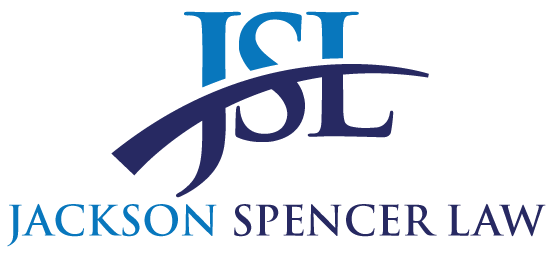After the start of President Trump’s second term in early 2025, there has been a wave of executive orders and actions affecting the Equal Employment Opportunity Commission (EEOC), as the White House has made diversity, equity, and inclusion (DEI) initiatives the subject of intense scrutiny.
Our team at Jackson Spencer Law will keep you informed about the impact the new administration is having on the EEOC. Since the EEOC is the sole federal agency in charge of protecting employee rights in the workplace, changes at the EEOC level may significantly impact workers’ rights in America.
The team at Jackson Spencer Law is committed to an objective, factual review of these events that is free of political bias because we believe these policy changes affect all American workers, regardless of their political affiliation. If you are a Texas resident about to file a claim with the EEOC, please consider getting an experienced legal team on your side before you file.
Timeline of executive actions impacting the EEOC
(from most recent to least – last updated April 23, 2025)
April 23, 2025: President Trump signed an Executive Order (EO) titled Restoring Equality of Opportunity and Meritocracy. The EO aims to eliminate disparate impact liability for employers, stating that it “violates our Constitution.” Disparate impact liability occurs when a seemingly neutral policy or practice unduly disadvantages individuals based on their protected class. For example, disparate impact can result from employment practices that enforce height and weight requirements not essential to the job, disproportionately affecting women, or hiring policies influenced by customer preferences that may rely on stereotypes. The Executive Order asserts that the U.S. is a land of equal opportunity but not “equal outcomes,” meaning that employees can’t claim federal protection if/when an employer’s policies adversely affect their outcomes because of their protected class (race, disabilities, gender, and so on
POTENTIAL IMPACT: It remains to be seen if this executive order will pass judicial review, since it seeks to fundamentally alter civil rights protections at the federal level. Even if this EO passes judicial reviews and eliminates disparate-impact liability from consideration by federal agencies and courts, individual states may enact civil rights laws separate from those originating in the Civil Rights Act of 1964. If they do, those laws will remain under state and local control and create substantial tension for employment and hiring practices of multistate employers.
February 19, 2025: By press release, EEOC echoes Trump Administration anti-immigration initiatives by saying, “The EEOC is putting employers and other covered entities on notice: if you are part of the pipeline contributing to our immigration crisis or abusing our legal immigration system via illegal preferences against American workers, you must stop. The law applies to you, and you are not above the law…. Unlawful bias against American workers, in violation of Title VII, is a large-scale problem in multiple industries nationwide…. Many employers have policies and practices preferring illegal aliens, migrant workers, and visa holders or other legal immigrants over American workers—in direct violation of federal employment law prohibiting national origin discrimination. Cracking down on this type of unlawful discrimination will shift employer incentives, decreasing demand for illegal alien workers and decreasing abuse of the United States’ legal immigration system.”
POTENTIAL IMPACT: Possible focus of future litigation by the EEOC against employers who seem to exhibit discriminatory or retaliatory behaviors towards American workers as a distinct national origin classification.
February 4, 2025: President Trump appointed Andrew Rogers as the new EEOC general counsel today.
January 28, 2025: Via press release, the EEOC Acting Chair Andrea Lucas announced several gender-related initiatives:
- Removed the EEOC’s “pronoun app” which allowed employees of the EEOC to identify their pronouns in their email profile visible to people internal and external to the EEOC
- Removed the “X” gender marker on forms for filing charges of discrimination and removed “Mx” as a prefix option on the same form
- Reiterated her opposition to the idea that denying someone access to a bathroom based on the individual’s gender identity is harassment and reiterated her opposition to the idea that refusing to use someone’s preferred gender pronouns could also be defined as harassment.
POTENTIAL IMPACT: While these initiatives are more focused on the EEOC and its employees, they do signal potential future stances on gender-related discrimination and harassment
January 27, 2025: EEOC Commissioners Charlotte Burrows and Jocelyn Samuels, two of the three Democratic commissioners of the EEOC, were informed by the White House that they were being removed from their positions effective the next day, January 28th.
- Without these two removals, Democrats would have held a 3-2 majority among the 5 EEOC commissioners through 2026
- Title VII of the Civil Rights Act of 1964 does not clearly say how a presidentially appointed EEOC commissioner could be removed either with or without cause
- It is thought that with these removals of 2 Democratic commissioners, the remaining commissioners can more swiftly enact the new Republican administration’s policy ideas related to rights in the workplace
- “Without a quorum, the EEOC can also issue and revoke technical assistance, which differs from formal guidance in that it doesn’t require a majority vote of the commission.”
POTENTIAL IMPACT: with only 2 active EEOC commissioners now (out of 5 possible) and no quorum (3 commissioners), the agency may be limited in what it can accomplish and the commissioners may experience more gridlock on decisions
January 21, 2025: President Trump appointed EEOC Commissioner Andrea R. Lucas as the Acting Chair of the EEOC. The EEOC is composed of 5 presidentially appointed commissioners, with staggered terms of 5 years.
January 20, 2025: Executive Order 14151 titled “Ending Radical and Wasteful Government DEI Programs and Preferencing,” this order sought to dismantle diversity, equity, and inclusion (DEI) initiatives within federal agencies, including the EEOC.
January 20, 2025: President Trump was inaugurated for his second presidential term.



